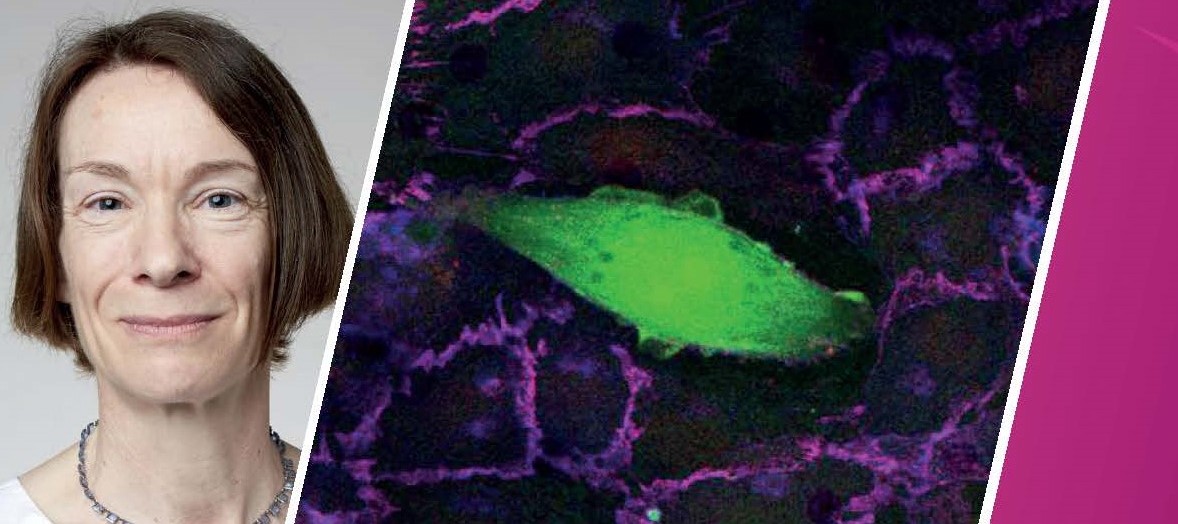Understanding cancer metastases to develop new treatments
If a cancer was detected before it had spread, it could be treated more effectively, and the patient would have a much higher chance of being cured. However, if a cancer has spread from organ of origin to other parts of the body, for example bone, brain or lung, then it becomes more difficult to treat and patients are rarely cured.
Anne Ridley FRS, Professor of Cell Biology, studies how prostate and breast cancer cells spread and form secondary tumours, known as metastases. In order to spread, cancer cells first detach from the tumour, then enter blood vessels and circulate in the blood stream. If they then attach to and migrate through the blood vessel wall in a different tissue, they may grow there to form a metastasis. Professor Ridley has shown that prostate and breast cancer cells need to change their shape to move through tissues, and to attach to blood vessels. She has also identified several molecules on the surface and inside of cancer cells that are needed for the cells to attach to blood vessel walls.
For some of these molecules, therapeutic chemicals known to reduce their activity already exist. Professor Ridley’s group is currently testing some of these chemicals to see if they could be used to treat patients with prostate or breast cancer in future. This type of treatment is particularly important for patients with aggressive cancers that are likely to metastasise early and, if successful, could lead to treatments that prevent or reduce cancer metastases and thus increased cure rates for prostate, breast, and other cancers.
https://www.bristol.ac.uk/people/person/Anne-Ridley-68d1bf7e-4a1b-4bcb-abd8-316e35f5f768/
Publications:
- Clayton NS and Ridley AJ (2020). Targeting Rho GTPase signalling networks in cancer. Frontiers in Cell and Developmental Biology.
- Kazmi N et al. (2022). Rho GTPase gene expression and breast cancer risk: a Mendelian randomization analysis. Scientific Reports.

Right: Prof Anne Ridley. Left: Picture of prostate cancer cell (green) attached to endothelial cells (in purple; these cells line blood vessels).